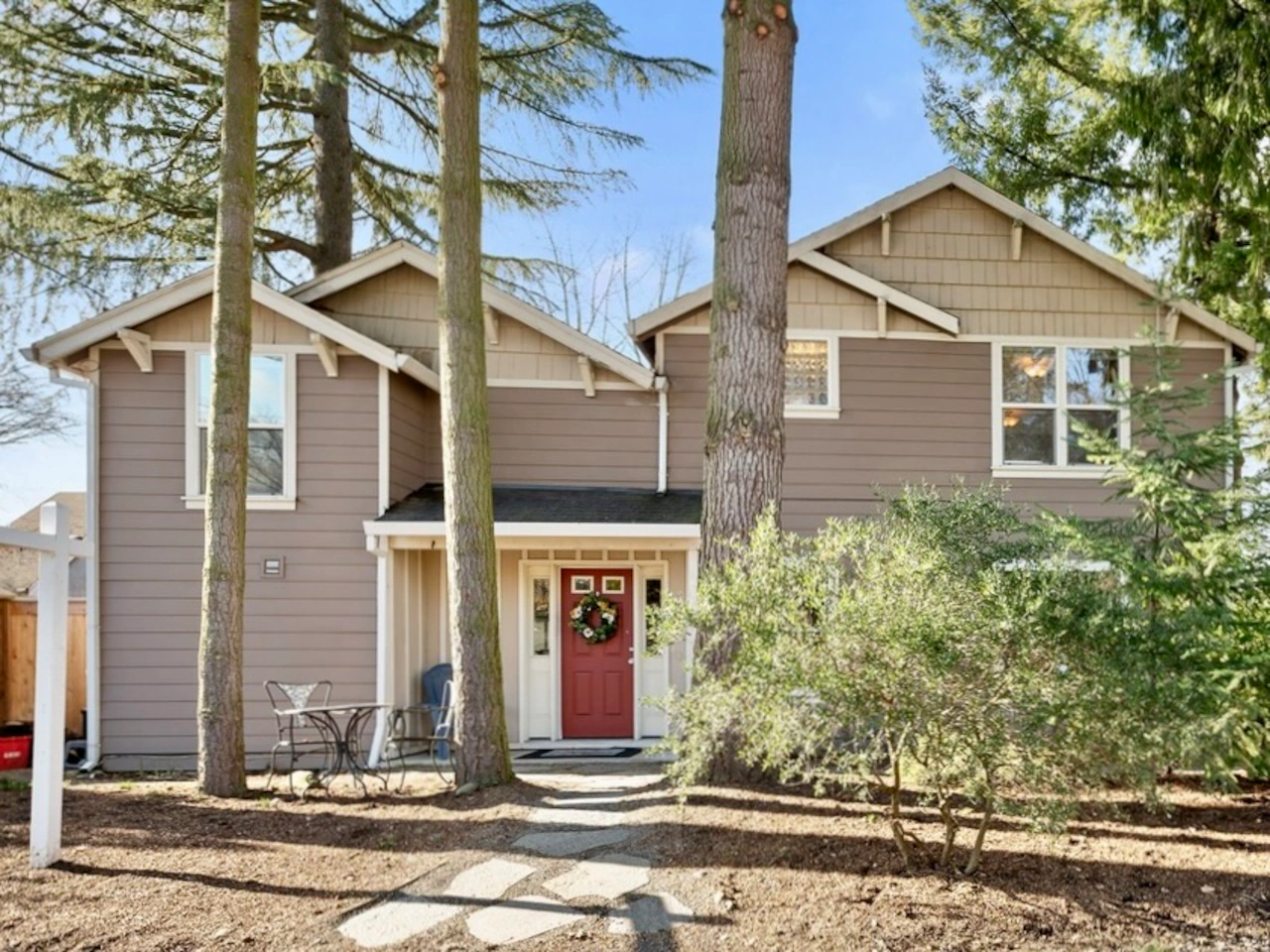
After Mary French of Northeast Portland separated from her husband in April, she lived temporarily in a friend’s Airbnb. By July, she decided to find a place of her own, “to settle,” she said.
“I didn’t plan on buying a home right away but I also didn’t want to rent,” said French.
Working with Kia Caise-Williams, a Portland real estate broker with Coldwell Banker Bain, French signed the deed in August for an updated two-bedroom bungalow in the Concordia neighborhood close to vibrant Alberta Street.
The 900-square-foot home was described as a townhouse alternative, and the long front yard appealed to French, who likes to garden.
The price, at $499,000, was within her budget and under Portland’s median sale price of $550,000, according to the latest Regional Multiple Listing Service (RMLS) report capturing August data.
Caise-Williams negotiated the sale price to $484,000, $15,000 less than the asking price.
“Kia was a huge help and I couldn’t be happier with my ‘tiny palace,’” said French, who had lived close to her new street for years and benefited, she said, from knowing the neighborhood.
Her advice to other home shoppers: Purchasing a residential property is a big commitment. Take your time.
Home buying help
Buying a home is complex. For many people, there is the financial challenge of saving for a down payment while paying off credit cards, loans and other debt. And there’s the emotional weight of finding the right home, in a preferred location at an affordable price.
But somehow, 66% of U.S. households live in a place they own, according to Census Bureau data. And each contract is unique.
The National Association of Realtors’ 2025 Home Buyers and Sellers Generational Trends report found first-time buyers made up 24% of all purchases last year, a decrease from 32% in 2023.
For all homebuyers 59 or younger, the main reason for purchasing remains the desire to own a home of their own, according to the report. Among buyers 60 and older, the top reason was to be closer to friends and family.
On Wednesday, the Federal Reserve lowered its benchmark interest rate by a quarter point to about 4.1% and projected it could reduce rates two more times before the end of the year.
These rate cuts tend to translate over time into lower interest rates on credit card balances, new car loans and mortgages.
The average 30-year fixed-rate mortgage this week is 6.26%, according to the Federal Home Loan Mortgage Corporation, known as Freddie Mac.
Caise-Williams said lower mortgage rates can increase affordability and borrowing power by reducing monthly payments and allowing shoppers to qualify for larger loans.
“This can make homeownership more accessible and financially manageable,” she said. “However, lower rates often attract more buyers into the market, increasing competition. As demand rises, housing prices may also increase, which can offset some of the affordability gains.”
She suggests home shoppers tap into local, state and federal agencies offering homeownership classes, grants and other resources to support their goal.
A housing counselor can help navigate the complicated process. Professionals across the state advise people one-on-one on ways to improve their credit score, manage debt and prepare for successful homeownership.
Saving for a down payment, which can be from 3% to 20% of the sale price, is one of the biggest barriers to buying a home, experts say.
Oregon Housing and Community Services offers down payment and closing cost assistance for first-time homebuyers, and works with FirstHome and NextStep lenders through Flex Lending.
Individual development saving accounts are open to people with lower incomes, and Oregon’s Department of Revenue offers a first-time homebuyer tax credit.
(Keep up to date with state and federal actions that aim to cut funding to several core housing programs.)
Portland’s Down Payment Assistance Loans is a second mortgage funded by the Portland Housing Bureau in its program for low-to-moderate income residents.
A down payment loan is used in conjunction with a first mortgage from a participating lender like the African American Alliance for Homeownership (AAAH), which is holding its 26th Annual Homeownership Fair Oct. 25 at the DoubleTree Hilton in Northeast Portland.
Another lender working with the Portland Housing Bureau is Hacienda Community Development Corporation, which is offering a daylong class on the ABCs of home buying Saturday, Sept. 20, at Las Adelitas, an affordable housing community in Northeast Portland.
Participating lender Native American Youth and Family Center (NAYA) also offers homeownership coaching, and Portland Community Reinvestment Initiatives (PCRI) has a homeownership program.
Caise-Williams specializes in helping first-time homebuyers and other renters who don’t want to worry about having to move if a landlord increases the rent or wants to sell the property.
“Buying a home is about stability,” said Caise-Williams, who uses Altos Research to track U.S. property values, list prices and trends. “There are homes on the market, but many people assume they can’t afford them because they haven’t explored their options.”
Home wish list
One of the first steps to property ownership is figuring out what the home shopper can afford and what size and type of dwelling fits their budget and needs, from a fixer-upper, updated home or new construction.
Caise-Williams recommends people think about the location and home amenities they need for their comfort, accessibility and lifestyle. She suggests they ask themselves:
Do you want to be close to work, public transportation, bike corridors or freeways? The 2025 Home Buyers and Sellers Generational Trends report found 25% of younger Millennials (ages 26-34) moved directly from a family member’s home to their purchased home, and they prioritized convenience to their job and commuting costs.
What amenities are important? A home workspace or garage, or a low-maintenance home and yard? An energy efficient home makes heating and cooling costs consistent, which helps people create a real budget to plan ahead, Caise-Williams said.
Do you plan to stay in the home or turn it into a rental?
Caise-Williams recommends home shoppers take their time, gather all the information they need and know their expenses.
“Knowledge is power,” she said.



